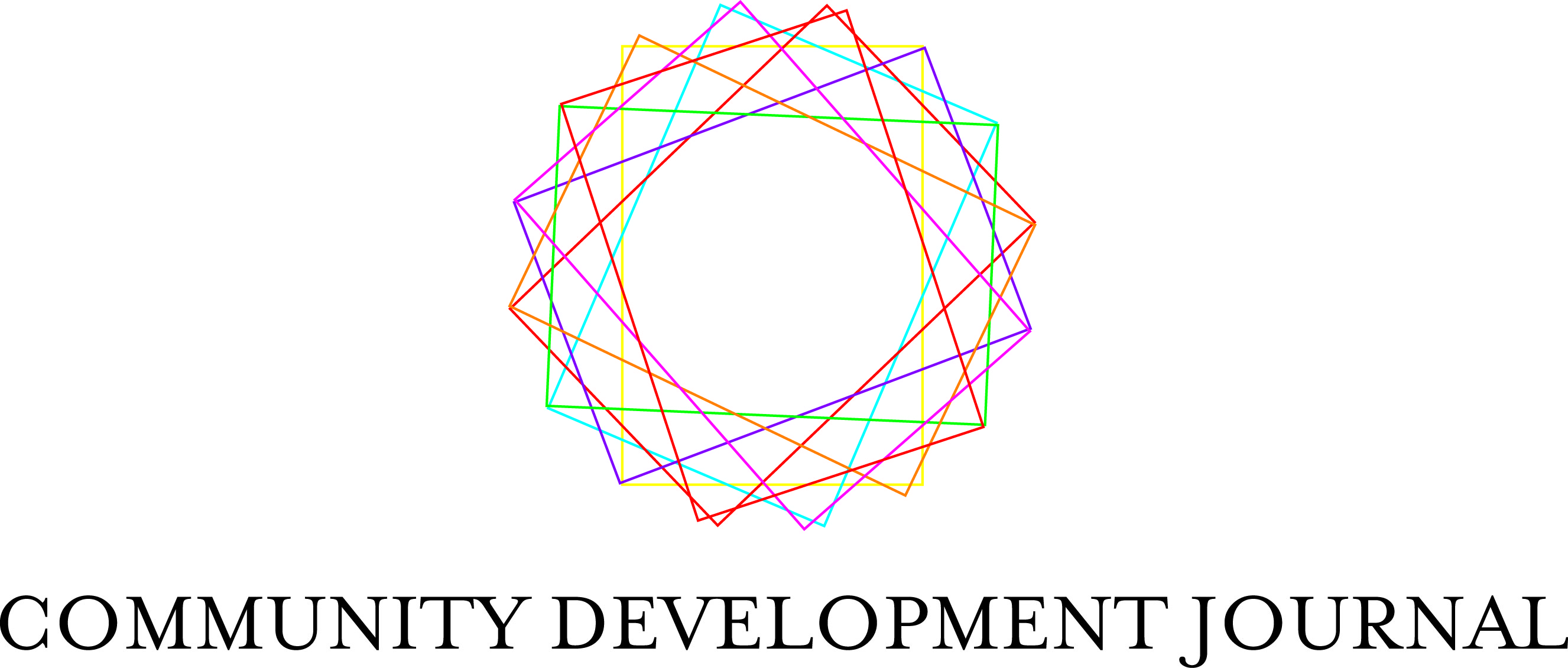
Participatory Recovery and Reconstruction: Lessons from Ukraine
On Monday 26th February 2024, Nataliya Drozd (Dobrochyn Centre) and Oleksandr Pidhorniy (Chernihiv Centre for Human Rights) spoke in conversation with peacebuilding expert Professor Sinéad Gormally (School of Education, University of Glasgow) at an event jointly organised by Community Development Journal and the University of Glasgow.
We heard first-hand about the challenges of facilitating recovery during an active war, and making sure that recovery is participatory and driven by local needs and conditions. Nataliya has been kind enough to summarise some of her work and insights:

Ensuring Participatory Recovery on Local Level
By Nataliya Drozd
Two years have been passed since the beginning of a full-scale Russian invasion of Ukraine. Ukraine’s citizens, houses, hospitals, schools, cultural institutions, energy sector, infrastructure and environment have all suffered enormous damage. Millions of people have been displaced, many fleeing Ukraine; thousands are dead or wounded; and many towns have been razed to the ground.
The process of reconstruction is subject to constraints on human capital. Over 6 million Ukrainian citizens have left the country, and more than 5 million obtained the status of internally displaced persons in Ukraine.
Territorial communities in the north, east, south and west have suffered differently from the Russian invasion: some were occupied and liberated; some still have active fighting; some were severely destroyed by shelling and bombing and some have accepted hundreds and thousands of IDPs (internally displaced persons). The conditions affecting each community are different.
The active phase of the war is far from over. And despite the ongoing hostilities in Ukraine, the country’s recovery process has already begun.
Ukrainian ownership during the recovery is paramount. Participatory process is important, in ensuring that diverse representatives are meaningfully included and heard. The recovery agenda should not be determined by donors’ offers and expertise, but by local needs and propositions. It is paramount that local governments define, in consultation with the broad civil society and citizens, what their key priorities are and what existing local expertise can be incorporated in the recovery planning documents.
The issues we address are social cohesion, engagement and trust in the recovery process.
At present, local authorities need to address the urgent issues in their communities. They have to provide services for citizens, ensure access to medicine, schools for children, and address security issues — everything that is connected to early recovery.
Such activity shows that communities are most concerned with solving current issues. They do not possess enough time or capacity to plan for strategic recovery and development. Therefore, cooperation with civil society strengthens their capacity to "build back batter" or “build forward” and involve citizens in the recovery and reconstruction processes.
In a nation-wide survey conducted for the National Democratic Institute in January 2023, almost 80% of respondents said that they personally would be willing to contribute to the reconstruction process.[1]
At this point, it is important to define key priorities in consultation with the wider public (including IDPs, veterans, youth, people with disabilities, etc) and figure out what local expertise can be incorporated into recovery projects/plans/strategies. That is what our activities are about.
We created Platforms for citizens’ participation in the recovery process in 5 pilot territorial communities:
- One in the Chernihiv region, in the northern part of Ukraine (this community was under operational siege);
- One in the Kharkiv region, in the eastern part of Ukraine (this community is still under shelling);
- One in the Luhansk region, in the eastern part of Ukraine (almost 90% of villages here are occupied);
- One in the Kherson region, in the south of Ukraine (this community is still under shelling);
- One in the Mykolaiv region, in the south of Ukraine (this community is a touristy place by the sea, which is now mined).
Our team facilitated meetings among various groups, such as youth, veterans, IDPs, people with disabilities, and library workers. We summarized this coordinated civil society input to the recovery, and then presented this to the local authorities, and discussed it with them. They agreed to take these responses into account during the process of preparing the recovery planning documents. Both local authorities and the people in territorial communities share responsibility for the future, and both are not only ready to contribute by suggesting propositions, but also to directly participate in reconstruction activities.
In total, during 8 months, there were:
- 40 meetings of Platforms, including 30 events with the wider civil society and 10 events with local authorities
- 887 participants, including 540 women and 347 men
- 442 links on internet publications, websites and social media
- 5 booklets, including top-7 challenges and top-7 propositions for recovery.
So, what difference have we made with our activities? Recovery is about people, not just roads, buildings, and so on. Our work ensures that the recovery process is administered both by the people themselves, and through collaboration between the people and local authorities. We have demonstrated the connections between different topics, including social cohesion, recovery, and inclusion. We have empowered people, and supported them in promoting wider public input to recovery plans, programmes, and strategies. And we have made transformative changes in people’s mindsets – empowering them to be proactive citizens.
We have concluded that human capital is critical to our recovery. It is not enough to just provide resources for people — they need to have a voice. Strong and resilient communities are the ones that communicate, and have trust. They are the ones that comprehend the value of human capital, and the importance of citizens’ involvement. Bridging the gap between people and policymakers at local, regional and national levels is vital. People’s leadership is beneficial both to the recovery process and the process towards EU accession.
[1] National Democratic Institute (2023), Opportunities and Challenges Facing Ukraine’s Democratic Transition, Washington, DC: National Democratic Institute,
